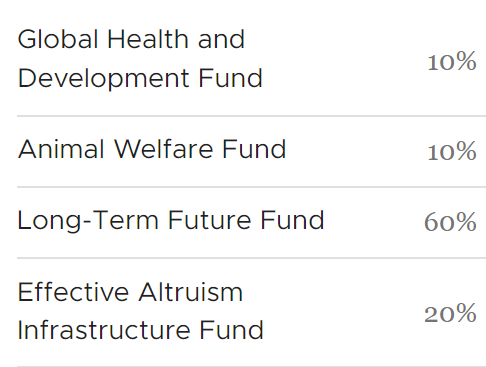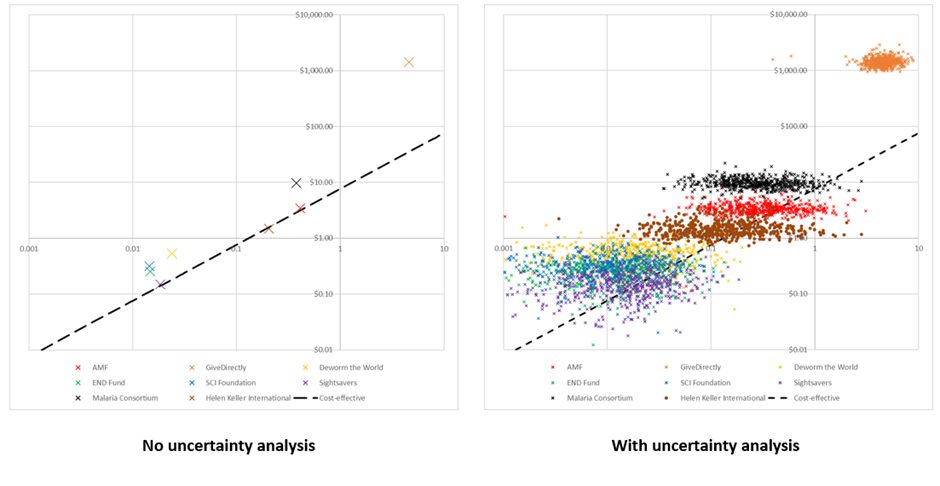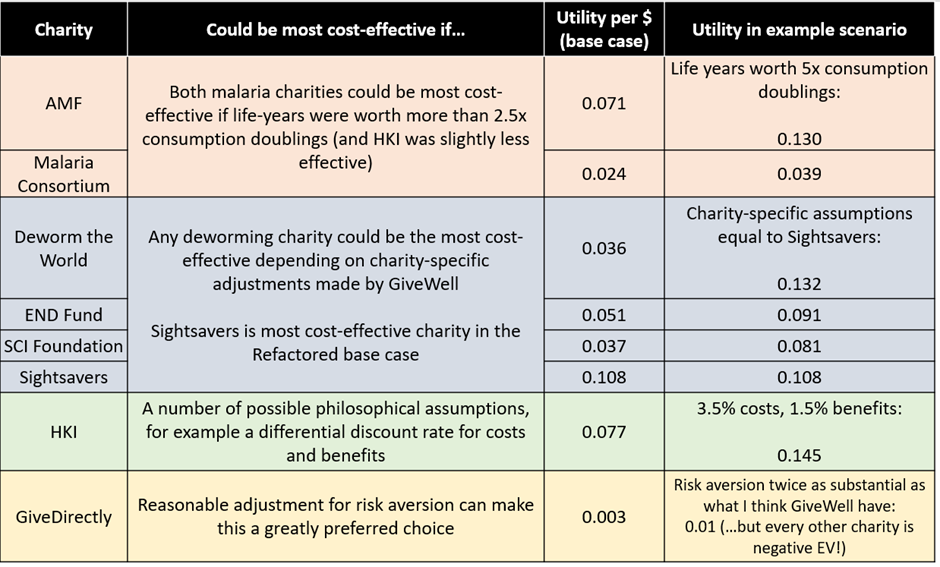This post[1] is intended as an open thread for anyone to share where you donated or plan to donate in 2022, and why.
I encourage you to share regardless of how small or large a donation you’re making! And you shouldn’t feel obliged to share the amount that you’re donating.
You can share as much or as little detail as you want (anything from 1 sentence simply describing where you’re giving, to multiple pages explaining your decision process and key considerations).
And if you have thoughts or feedback on someone else’s donation plans, I’d encourage you to share that in a reply to their “answer”, unless the person indicated they don’t want that. (But remember to be respectful and kind while doing this! See also supportive scepticism.)
Why commenting on this post might be useful:
- You might get useful feedback on your donation plan
- Readers might form better donation plans by learning about donation options you're considering, seeing your reasoning, etc.
- Commenting or reading might help you/other people become or stay inspired to give (and to give effectively)
Related:
- Effective Giving Day is coming up — November 28 — next week!
- Talk about donations earlier and more
- Previous posts of this kind:
As a final note: we’re enabling emoji reactions for this thread.
- ^
Adapted almost entirely from Where are you donating in 2020 and why?, with permission.





This is pretty basic, but a majority of my giving goes to GiveWell; I find that I unfortunately do not have enough time in a day to carefully plan where I want to give, so most of it ends up to GiveWell to use at their discretion. I also think it's important to give full-time experts that power as calculating the effectiveness of certain programs or inititatives is just impossibly difficult and I just don't understand the math well enough (yet) to claim to be in a strong position to make this decision.
Through Giving What We Can, I give (in equal amounts) to: the Animal Welfare Fund, the Against Malaria Foundation, Evidence Action, and the Good Food Institute.
For the Animal Welfare Fund, it is my reasoning that animal suffering makes up a disproportionately large amount of the world's suffering. It seems extremely cost-effective based on what I know to alleviate that suffering. It is very likely that I will donate any extra money that I come into this holiday season via odd jobs, gifts from family, or just excess in my budget to the Animal Welfare Fund.
The Against Malaria Foundation is GiveWell's #2-ranked charity right now, so I figured that I could further my impact in malaria prevention by donating some money here.
I care a lot about proper education for a lot of reasons. It has done me a lot of good, but I also think it could be effective at lifting others out of poverty, breaking the cycle, perhaps alleviating global poverty and human suffering, and so much more. In the long term, having more educated people working on important issues would also be good for morally relevant beings as a whole. Seeing that deworming initiatives are effective at driving up school attendance rates in underdeveloped nations, I see this as a good cause to donate to. I do sometimes feel torn, because if deworming does lead to higher rates of literacy and spurs economic growth, this could lead to an increase in a demand for animal-based food products in nations that currently do not eat very much of them (this is a trend visible in all developing-to-developed countries except for India), which would increase suffering. However, it is probably better in the long run to move towards a more educated world with less global poverty than it is to maintain the status quo in this area; perhaps other nations will follow closer to India's trends or once these populations reach a certain widespread level of education demand for animal-based products will fall.
Anyone who has read this far can probably tell that animal suffering is the thing I focus on a lot. So I donate to the Good Food Institute in hopes that lab-grown meat and other plant based alternatives can reduce the consumer demand for factory-farmed and traditionally produced animal products.